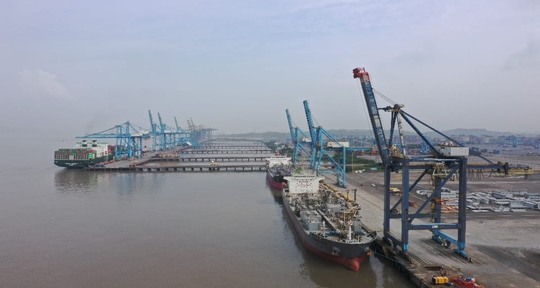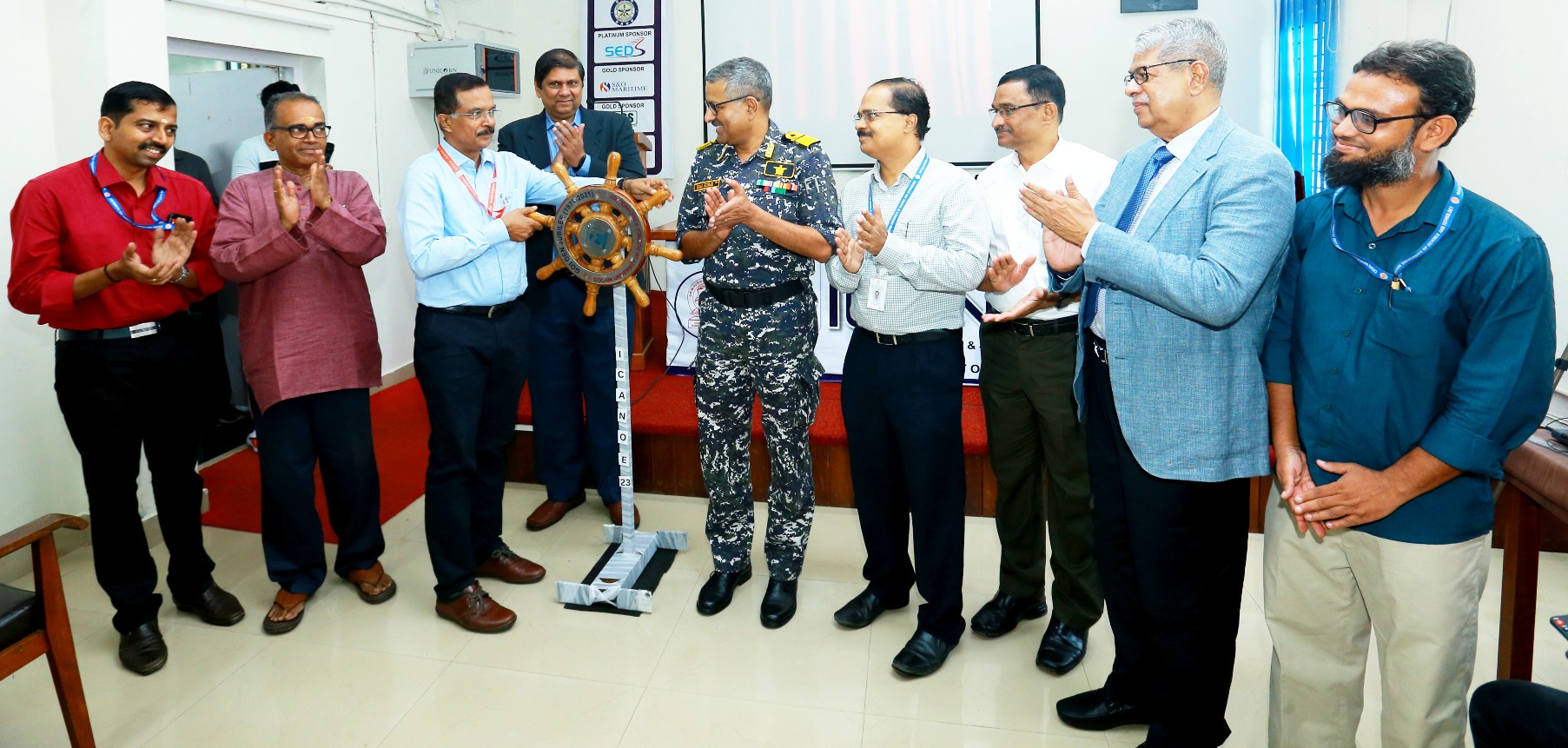When the Sea Cries and Nobody Listens:
Oil Spills, Floating Waste, and the Silent Poisoning of Navi Mumbai’s Coast
Maritime News Mumbai, India: The sea near India’s largest container port, Jawaharlal Nehru Port Authority (JNPA) formerly JNPT (Jawaharlal Nehru Port Trust), is choking. Not just on oil slicks and floating waste, but on years of official apathy, overlooked warnings, and the rising cries of local communities who are losing their livelihoods—and perhaps, their health.
In a statement delivered in the Maharashtra Legislative Council this week, Minister Pankaja Munde said that senior officials would be sent to inspect JNPT’s pollution control mechanisms. But for those who live and fish along this coastline, it’s a familiar promise.
Because this isn’t the first time. And this inspection won’t be the last—unless something truly changes.
From JNPT to JNPA: A Port’s Evolution, Accountability in Limbo
In November 2021, Jawaharlal Nehru Port Trust (JNPT) became Jawaharlal Nehru Port Authority (JNPA) following the enactment of The Major Port Authorities Act, 2021. The shift introduced a landlord port model, where the authority owns the infrastructure, but private operators run the terminals. However, even the Ministers have not yet accepted the new name and in official statements they still uses JNPT.
While this model promised efficiency, it also created fragmented accountability—especially on environmental compliance. When oil leaks, or waste clogs creeks, who is responsible? The operator? The port authority? Or the government?
Record Cargo, Rising Concerns
Even as pollution darkens its waters, JNPA’s operational data tells a glowing story of success:
Highlights of June 2025:
- 615,545 TEUs of containers handled (↑ 8.49% YoY)
- 7.55 million tonnes of total cargo (↑ 2.19%)
- 606 container rakes and 98,777 TEUs moved by rail (↑ from 538 rakes and 86,297 TEUs in June 2024)
Highlights of FY 2025–26 (Apr–Jun):
- 1.95 million TEUs and 24.20 million tonnes of cargo handled
- Growth of 15.52% in containers and 10% in total cargo compared to the same period last year
- 1,764 rakes and 284,102 TEUs moved by rail (↑ from 1,534 rakes and 243,309 TEUs)
This growth is impressive—but it raises a difficult question:
If we can scale cargo so efficiently, why can’t we control pollution with the same urgency?
A Decade-Old Disaster That Never Made Headlines
Floating garbage and frequent oil spills in the JNPT area aren’t recent developments. They’ve been happening for decades—just without sustained public attention.
While the port claims to have activated waste collection systems through Multi-Purpose Utility launch (MPUL), through M/s SHM Shipcare, Mumbai since 2017. However, locals say these actions are largely symbolic. “There’s machinery on paper, but pollution in the water,” says a fisherman from Uran who has watched the coastline degrade year after year.
MLC Prasad Lad raised this exact concern in the Council, asking why pollution from coal transport and shipping operations continues to harm marine life—and by extension, human life.
From Contaminated Waters to Market Stalls
Here’s the most disturbing part: Fish caught in this polluted zone are still being sold across Navi Mumbai. Unsuspecting consumers are buying seafood—some of it visibly oily—without knowing its source.
“People are eating poison and calling it prawn curry,” says a local seafood seller from Panvel, who admits there’s no regulation on where fish are caught, how they’re tested, or who monitors their safety.
Repeated studies globally have shown that fish exposed to oil residues and chemical runoff can carry carcinogens and heavy metals. And yet, in Navi Mumbai, there is no clear health advisory or public awareness drive about the seafood coming from these contaminated waters.
Ecology in Crisis: A Dead Sea in the Making?
Beyond humans, the marine ecosystem itself is collapsing. The oil slicks disrupt breeding grounds for fish, damage mangroves, and endanger dolphin sightings once reported near Uran and Nhava.
The area has become what marine biologists call a “low-oxygen dead zone” in certain pockets—meaning the water is so polluted, even bacteria can’t survive.
And yet, port operations continue. Ships enter, coal dust flies, oil leaks, and the silence persists—until local protests force a momentary reaction from the government.
A Cry for Accountability, Not Inspections
Minister Pankaja Munde has promised that senior officials will inspect the pollution control systems at JNPT. But locals aren’t celebrating.
They’ve heard it before.
What they’re asking for now isn’t another “inspection”—but:
- Strict enforcement of anti-pollution protocols
- Transparency in reporting oil spills and waste levels
- Health impact assessments for people consuming seafood from the area
- Clear zoning and monitoring for fishing activities
And a real plan to restore marine ecology, not just sweep the surface clean
The Sea Is Speaking—Is Anyone Listening?
India’s maritime ambitions are vast, but without environmental stewardship, they’re built on a sinking foundation. JNPT may be a symbol of industrial progress, but its surrounding waters are telling a darker story.
The government must act—not when locals cry, not when the media reports, and not when it becomes a political issue—but because this crisis is already harming people silently.
Because the next fish caught may look fresh.
But it’s what’s inside that could be deadly.
Who’s Responsible—and Who’s Silent?
The ongoing environmental damage is not just a port issue—it is a multi-agency failure:
Directorate General of Shipping (DG Shipping)
Tasked with ensuring safety and environmental standards aboard Indian vessels and ports, DG Shipping has yet to:
- Enforce strict spill reporting protocols at JNPT
- Mandate fisheries impact assessments
- Introduce real-time monitoring of waste discharges from anchored ships
Their silence on the matter is especially troubling given the increasing number of oil tankers and coal carriers using the route.
Ministry of Ports, Shipping and Waterways (MoPSW)
While MoPSW promotes India as a global maritime hub, it has failed to balance port development with ecological responsibility. Under its watch:
- Port expansions continue without sufficient ecological impact assessments
- There’s no clear action plan to protect coastal communities
- Ammonia and alternative fuels are being discussed, but basic oil spill control is ignored
Maharashtra Pollution Control Board (MPCB)
The state’s primary environmental watchdog, MPCB has taken no visible punitive action despite repeated reports of:
- Oil sheen in the sea
- Blackened mangroves
- Waste flowing through creeks near Uran, Nhava, and Panvel
MPCB’s monitoring data isn’t publicly available, and no consumer advisory has been issued regarding contaminated seafood in local markets.




